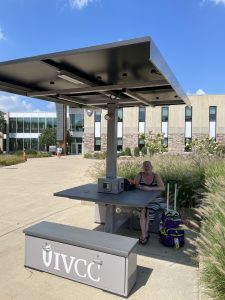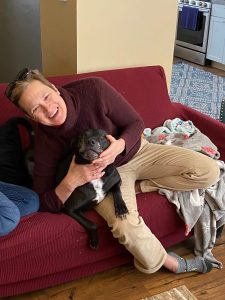Cancellation of Human Services Class Enrages Students, Teachers
March 7, 2019
On Feb. 14, the news was made public that IVCC would be placing Human Services on inactive status as a result of “unsustainable enrollments.”
Although students currently enrolled in the program will be given the opportunity to complete their education, the courses will no longer be available after spring 2020.
Deb Anderson, vice president of Academic Affairs at IVCC, stated that one of the main concerns was, at entry-level positions “have low rates of pay with limited career paths.”
Instructor Jean Batson-Turner has been teaching the class for 17 years. She explained, “I built this class from the ground up. I relocated my life and devoted myself to it. It was my baby.”
She is capable of teaching sociology full-time; however, she plans on retiring Aug. 1, 2019.
Students are feeling discouraged, stating they feel things were handled “poorly.”Freddy Ralrick, a student at IVCC who lost his father to addiction a month prior, had changed his major from political science to human services.
When speaking to counselors, however, Ralrick claims that the counselors attempted to “persuade” him to reconsider.
“My counselor tried really hard to get me to change my mind,” remarked Ralrick. “Then, come to find out, they cut the course. How long did they know that this was going to happen? In a place like this, if four people want to help with drug and alcohol problems, that’s better than zero.”
Patricia Dillard, a part time student partaking in the course, expressed concern for the future: “Part time students felt like we were lied to. We were forgotten. We went through a week of fear. It feels as though students were not factored into the decision.”
It is no secret that the Illinois Valley area is a hot-bed for drug and alcohol problems, primarily opioid abuse. Students have stated that they chose this field because of the ever-growing and overwhelming amount of people struggling with addiction. However, this is not just a regional problem, this is a national problem.
The opioid epidemic, which is now the deadliest drug overdose crisis in US history, is getting Presidential attention. President Trump stated, in his first State of the Union speech in 2018, that there would be a focus on assisting those that need treatment and a commitment made to fighting the epidemic.
In the “one-year teach out,” there will not be any new students accepted into the program.
“You don’t hear from those students that have transferred,” Batson-Turner remarked. “I have worked hard to create a transferable program. There is a cycle of people who have been hurt, who want to help others. I don’t want to say the torch has been extinguished, but it has been made harder.”



